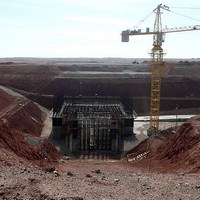On June 26, Mongolians will go to the polls to elect their next president, with incumbent Tsakhia Elbegdorj predicted to return to office with a renewed mandate. His principal challenge comes from B. Bat-Erdene, who maintains a strong base of populist support in Mongolia’s rural areas. The third candidate, Natsag Udval, is a staunch supporter of former President Nambar Enkybayar, currently serving a two-and-a-half year jail term on corruption charges. According to Julian Dierkes, a Mongolia expert at the University of British Colombia, Udval is unlikely to gain more than 5 percent of the vote, but her candidacy is noteworthy for her being the first woman to run for president in Mongolia. Elbegdorj, who has heralded Mongolia’s successful transition to democracy as a model for a region flush with corrupt kleptocrats, is likely to secure much of the urban vote in Ulan Bator as well as garnering support from the business community.
The election's outcome will have significant international implications. In 2011, Mongolia became the fastest-growing economy in the world, with 17.3 percent GDP growth as estimated by the World Bank. Mongolia’s mining and resource sectors, which are the main drivers of the boom, have attracted foreign investors to Ulan Bator with hopes of securing lucrative development contracts. However, this growth remains uncertain due to Mongolia’s overdependence on the global commodity market. Mongolia has not yet managed to mature its financial investments to diversify and spread its risk across markets. Moreover, the government in Ulan Bator still has a considerable amount of work to do before it sufficiently assuages the concerns of Western investors about rampant corruption and pegged contracts.
Thus far, Elbegdorj has been able to balance Mongolia’s desire to woo investors with legitimate concerns about the possibility of Mongolia’s becoming a mineral state. During his first term, he guided Ulan Bator’s diplomatic push to enhance ties with both of Mongolia’s immediate neighbors, China and Russia, as well as with foreign markets in Europe and North America. And he has taken steps over the past few months to ease rigid rules that restricted foreign companies’ ability to develop Mongolia’s mining assets.

